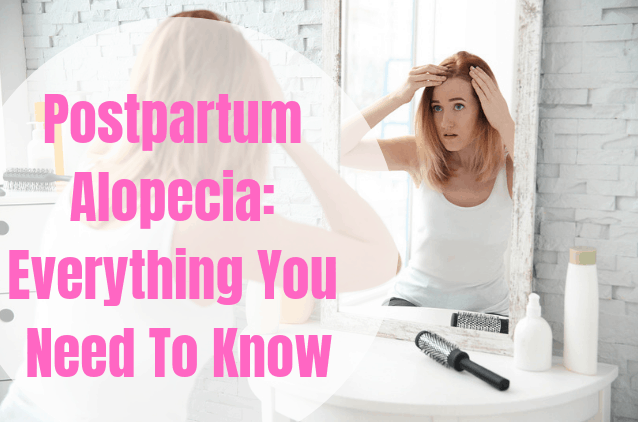
You’ve just had a beautiful bouncing baby, everything seems to be going really well.
You’ve even managed to slip into a bit of a routine with your new baby. You really couldn’t ask for more.
One day you are getting ready in the morning brushing those luscious locks of hair that you managed to grow whilst you were pregnant only to find that lots of strands of your hair seem to be falling out.
I’m not talking about the odd few hairs but enough to make your stomach turn.
For some women, this is the reality that they are facing – every day.
It’s a condition that affects the majority of women who have just given birth.
Postpartum hair loss can be quite worrying. For some women, it goes one step further and they get full blown postpartum alopecia.
***Please note that this site uses affiliate links. If you would like to read the legal stuff you can do so here
What causes postpartum alopecia?
It’s difficult to say exactly why some women experience postpartum hair loss and others don’t but it’s suspected that it is something to do with your pregnancy hormones.
Whilst you are pregnant your hormone levels increase quite a bit. You have an abundance of estrogen, progesterone, oxytocin, and prolactin floating around you.
Once you give birth these hormones tend to reduce quite significantly and results vary from woman to woman.
This could be the reason behind why some women experience postpartum alopecia more than others
Postpartum hair loss which is technically called postpartum alopecia affects 90% of women after giving birth.
Postpartum alopecia usually happens anywhere from a few weeks after birth until your child’s first birthday.
It can be extremely traumatic and upsetting.
Unfortunately, many women continue to suffer in silence as it is not well spoken about.
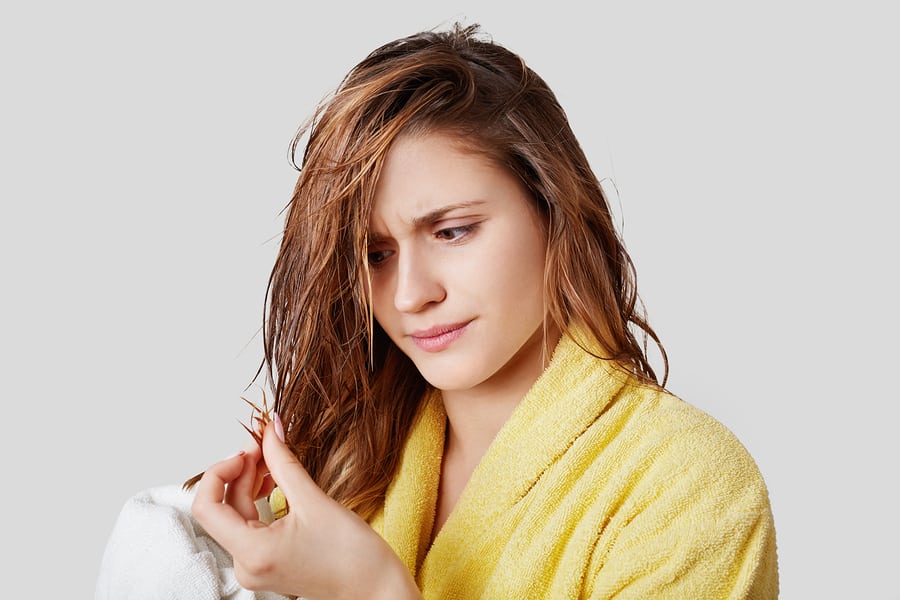
Postpartum alopecia can affect anyone who has just had a baby
Related posts:
- 10 Postpartum complications you need to be aware of
- The Best postpartum pads for those first few weeks after delivery
- 4 Ways to help your uterus shrink after birth
The theory behind postpartum alopecia
When you are pregnant your hormones start to do all kinds of funny little things.
Your hair will start to grow unlike anything you have seen before.
You will more than likely have thicker, longer and bouncier hair.
The reason for this is because once your pregnancy hormones kick in, your normal hair growth cycle of growing and shedding stops.
Every individual in the whole world that has hair grows and sheds it each day.
It is normal for you to lose roughly 100 strands of hair every day. (source)
Most of the time you probably won’t even notice this hair loss.
However, once you become pregnant this cycle stops and your hair will just continue to grow, shedding almost nothing daily.
Naturally, once you have given birth and your normal cycle for growth and shedding starts again, the hair that you should have lost whilst you were pregnant will now start to fall out.
Some women get through this process painlessly without noticing too much difference but others are not so lucky.
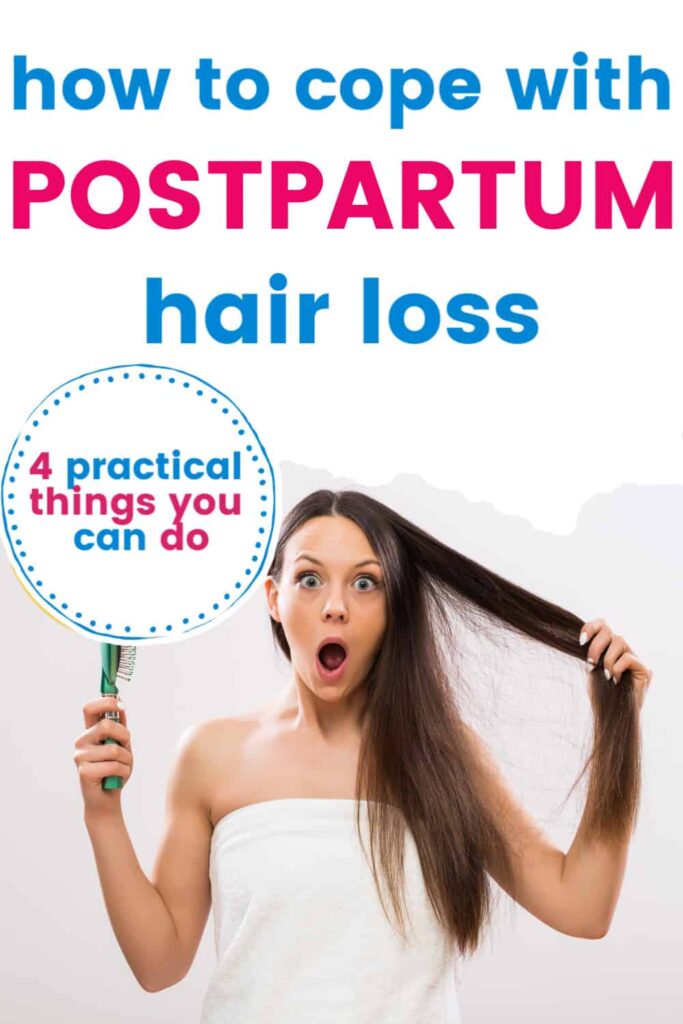
When does postpartum hair loss start?
It can begin at any time once a woman has given birth and will usually last anywhere from 6 – 12 months.
If you notice it going for longer than 12 months you may need to see a hair specialist.
How much is too much postpartum hair loss?
Realistically you shouldn’t notice too much hair loss during your day.
But some women notice it in extreme amounts.
When you are losing your hair it could be that it comes out in clumps in the shower or you might notice it as you brush your hair each morning.
Either way is equally upsetting.
It’s difficult to say exactly how much hair loss is too much because in an ideal world you wouldn’t want to lose any.
I think if you are finding that you are quickly going bald then you need to see a doctor or a hair consultant as soon as possible.
What you can do if you experience postpartum alopecia
The absolute first thing that you must not do is to panic. I know that is easier said than done but the more you upset yourself the worse you can make it.
Remember postpartum hair loss is completely normal.
You are already dealing with the flurry of hormones that are still floating around in your body after childbirth so you’ll want to try and remain as stress free as possible.
Whilst there is no cure if you do lose all of your hair there are some little things that you can do so that you don’t make it any worse along the way.
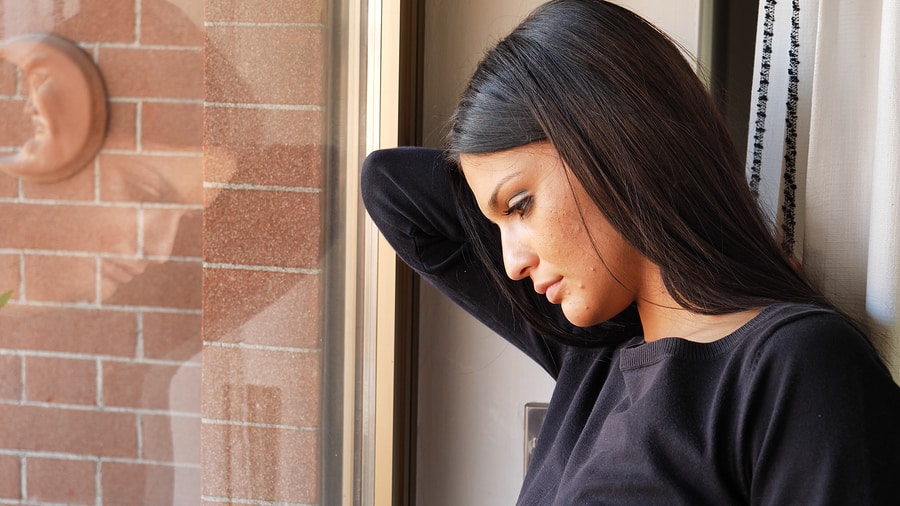
1. Less is definitely going to be more
Try not to do too much with your hair. You need to deal with that hand in hair syndrome and just leave it alone! Don’t touch your hair if you don’t need too.
Give your hair time to rest and don’t even think about doing that tight high ponytail that you usually do.
Now is the time to give your hair some freedom. Be much more cautious with your hair care routine.
2. Consider vitamins
If you feel that you need an extra boost especially if you are feeling run down then perhaps think about getting yourself some vitamins to help you out a bit.
I have always found these prenatal vitamins to be really good because they contain folate rather than folic acid. You can take these vitamins both during and after pregnancy.
Folic acid is synthetic and therefore harsher whereas folate is much kinder to the body.
If you are ever in any doubt please consult your doctor first.
3. Get that balanced diet
This is not the time to go off binge eating anything and everything.
You need to focus on eating a well-balanced meal to help you out right now.
If you are struggling to get your five a day in then definitely go down the juicing route.
You will need to do this even more so if you are a new mom and you are breastfeeding your baby.
You must take care of your health if you want to see real results.
4. New you
If those bald patches are beginning to show through a little too much for your liking then you need to think about a new hairstyle or haircut that can help you cover up your thinning hair.
This is hopefully just a phase and soon the process will slow down and you will be back to your normal hair shedding rate again.
Final thoughts on postpartum alopecia
If you are losing your hair in clumps after having given birth more than a year ago then you need to go and see a specialist as there could be more of a serious underlining issue to be dealt with.
Remember postpartum alopecia affects 90% of women, you are completely normal. You are not the first to experience this and you certainly won’t be the last.
Related posts:
- Postpartum headaches everyday: Why you are getting them
- The truth about your breasts after pregnancy
- 12 Things not to do after giving birth

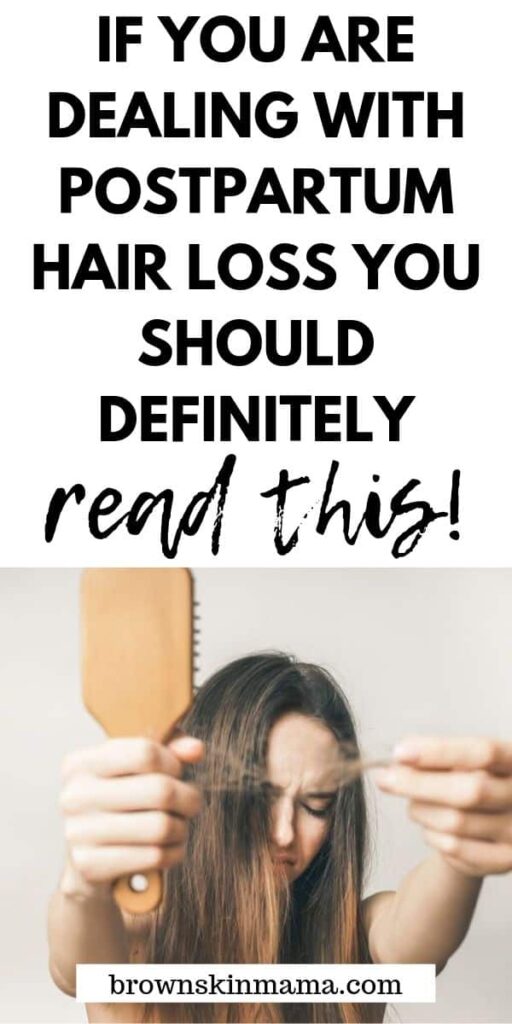



Leave a Reply
You must be logged in to post a comment.